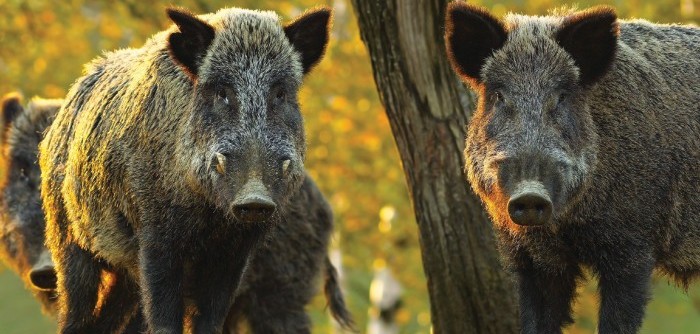The number of confirmed cases of African swine fever (ASF) is rising in both Belgium and China.
According to a report on the NPA website, a total of 28 wild boar have been diagnosed with the virus inside Belgium’s 240 square mile Infected Zone.
In total 69 dead wild boars have been found and most are analysed for ASF, including 45 inside the restriction zone and 24 outside it. Of the 45 dead boars in the restriction zone 28 of them have been diagnosed with ASF, according to the update forwarded to the NPA by ForFarmers’ Andrew Knowles. No information has been given about the dead wild boars found outside the restriction zone.
The update also says the precautionary cull of the pigs on the commercial farms in the restriction zone has been completed, while the culling of the pigs on the hobby farm in the restriction zone was due to be finished by the end of Tuesday.
The decision to cull around 4,150 domestic pigs on a small number of commercial premises and numerous smallholdings was taken last week by the Belgian authorities, with EU backing. Farmers will be compensated by national and EU funding, after Agriculture Minister Denis Ducarme’s plan was endorsed by the European Commission. The Belgian authorities have also faced calls for a cull of wild boar in the zone.
The Belgian authorities remain confident the actions they are taking both in the Infected Zone and beyond will keep the virus out of the domestic pig population. They have stressed that ‘very few’ domestic pigs are kept in this region and said the risk of domestic pigs becoming infected with ASF remains ‘limited’.
China crisis?
The OIE’s global animal disease database showed 29 cases had been confirmed in China by the end of September, following confirmation of the first case on August 3. The cases have been confirmed across eight regions, including most recently Mongolia. The furthest cases are thousands of kilometres apart.
In a detailed report on the global situation, CNN quotes the OIE’s deputy director general for international standards and science Matthew Stone. He said: “An outbreak of African swine fever is a very serious event. The authorities of countries affected are under extraordinary pressure.”
He believes that the movement of live pigs or pig meat has been ‘instrumental in both initiation but also propagation’ of the virus in China.
Dirk Pfeiffer, chair professor at City University’s College of Veterinary Medicine and Life Sciences in Hong Kong, suggested the wide geographical spread is due to the ‘extensive live pig trade network in China’. “Food waste is being widely fed to domestic pigs, which if contaminated with the virus, will greatly facilitate spread,” he said.
Where there is ‘significant illegal trade in live pigs, pork or food waste for feeding pigs’, it becomes ‘virtually impossible’ to find the source of the virus, he is quoted as saying.
Concern over the spread of ASF in China has also been voiced by Genus’ Jim Long, a well-known commentator on the pork sector.
“In our opinion it will be hard for China to stop ASF,” he said. “They will try but we have been in Russia for ten years, we have seen ASF there. We know Russia has tried to stop it and have made an excellent effort but so far have not been successful. Russia has land and strict bio security systems and protocols.
“The sheer scale of China’s industry and hog density makes the effort even more daunting.”




